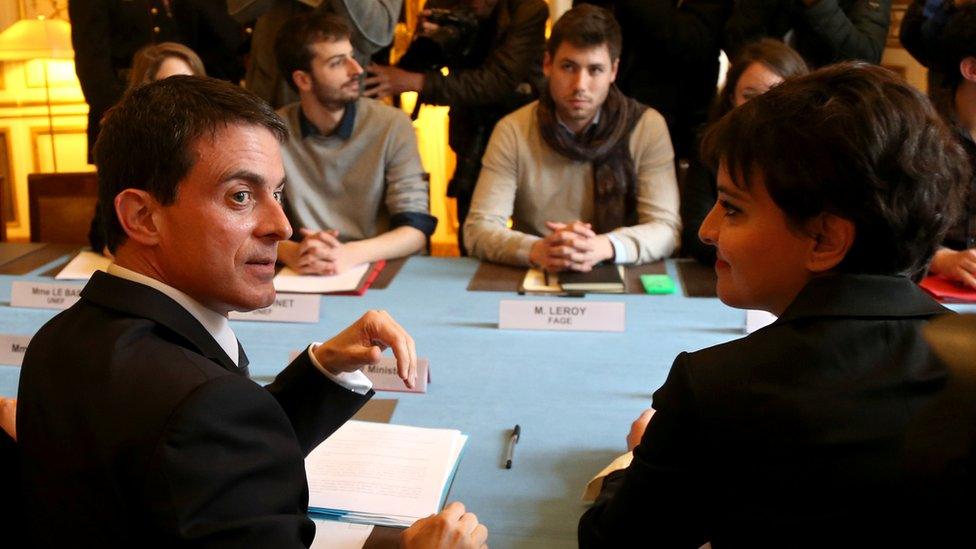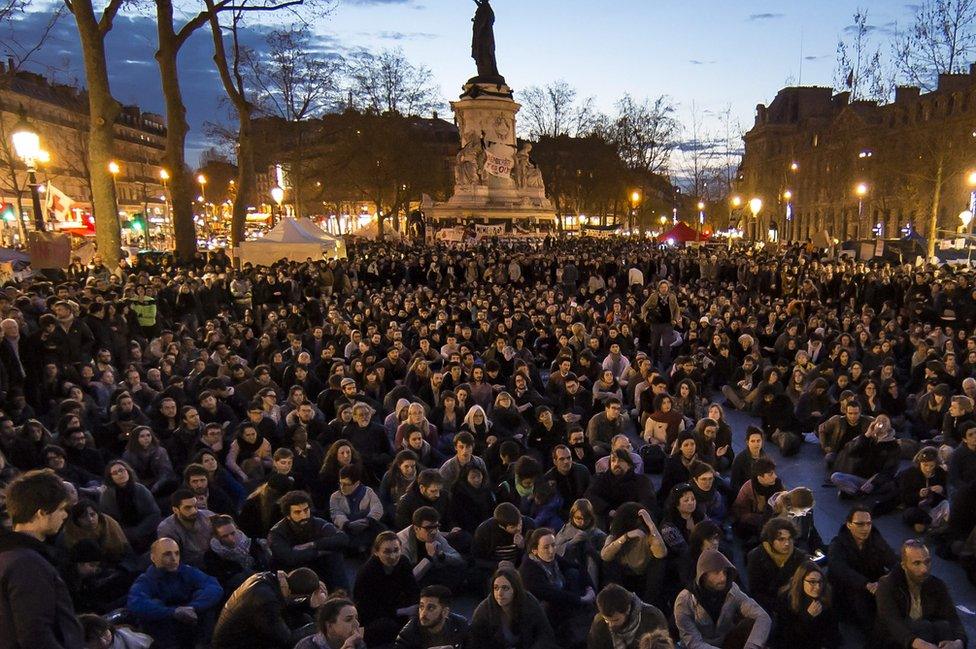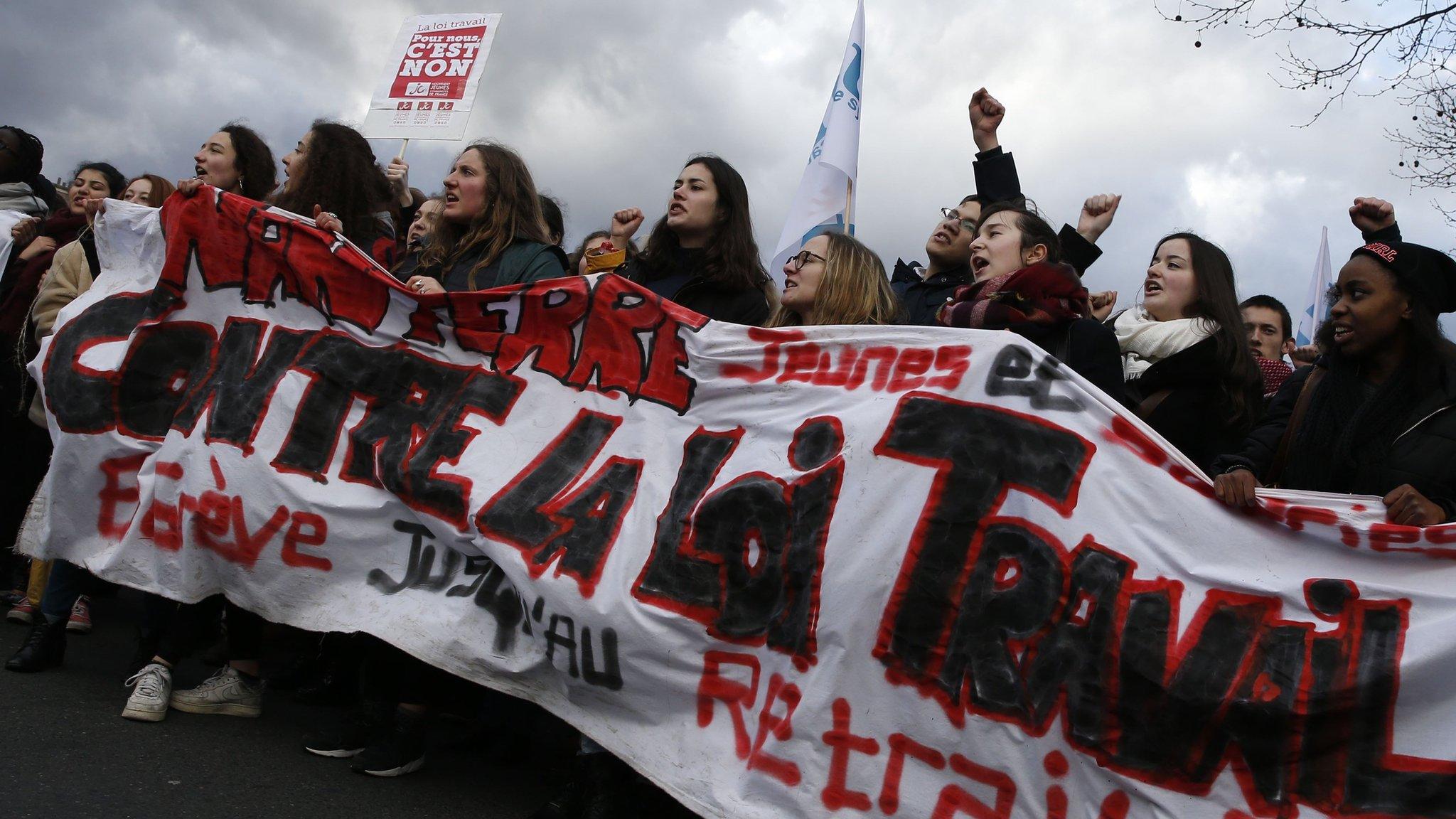France student protests: PM Valls offers jobseeker aid
- Published

Mr Valls (left) held talks with student leaders at his HQ on Monday
French Prime Minister Manuel Valls has proposed an aid package for students and young apprentices, after so-called "Nuit Debout" (Up All Night) protests by thousands of young people.
The subsidies for job-seeking graduates and other state support for youngsters are worth €400-500m (£321-401m).
The Nuit Debout movement has organised nightly rallies since 31 March against Mr Valls' labour market reforms.
Early on Monday police cleared away a protest camp on a central Paris square.
Wooden structures erected on Place de la Republique were dismantled and about 100 protesters dispersed peacefully.
The Nuit Debout activists, organised through social media, are mainly left-wing, and their activism has been compared to the Spanish Indignados citizens' movement and the Occupy anti-globalisation movement.

A crowd of young "Nuit Debout" protesters thronged Place de la Republique in Paris on Sunday night

Protesters strung up a dummy of Mr Valls with the slogan "Valls is finished"
Mr Valls announced the new aid package during a meeting with student leaders on Monday.
It includes a four-month subsidy for graduates who face financial hardship while seeking work.
There will also be a state housing guarantee for people under 30, which could apply to 300,000 people renting property.
The leader of France's main student organisation Unef, William Martinet, welcomed Mr Valls' package but said the protests against the labour bill would continue.
The labour bill would remove some of the protection workers enjoy against being laid off, in a bid to encourage businesses to hire more people.
It envisages giving employers more flexibility in setting the hours that their staff work; lowering the current high barriers to dismissal of staff; and new rules on industrial tribunal payouts.
The Socialist government is striving to push the unemployment rate below 10%.
Many Socialist voters see the current labour protections and 35-hour working week as key achievements that must not be sacrificed for a pro-business economic agenda.
- Published9 March 2016

- Published26 February 2016

- Published16 September 2015
